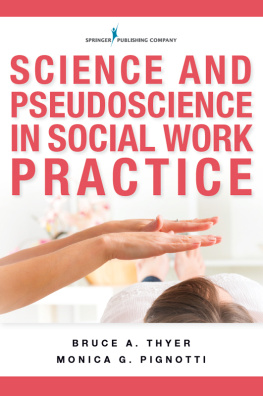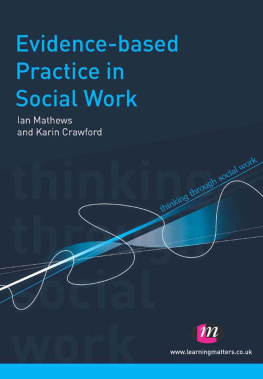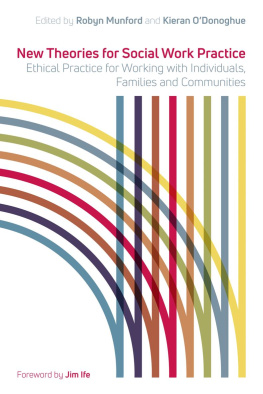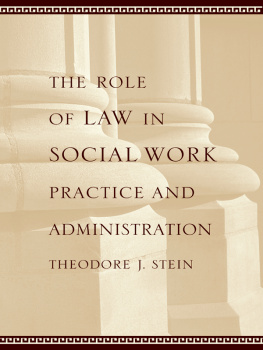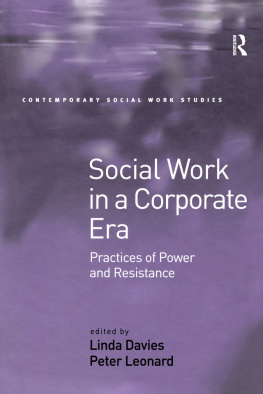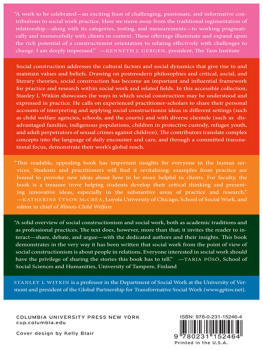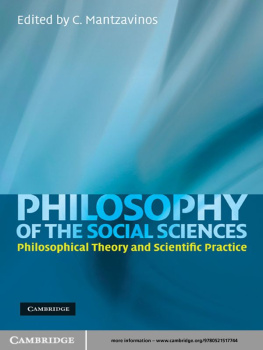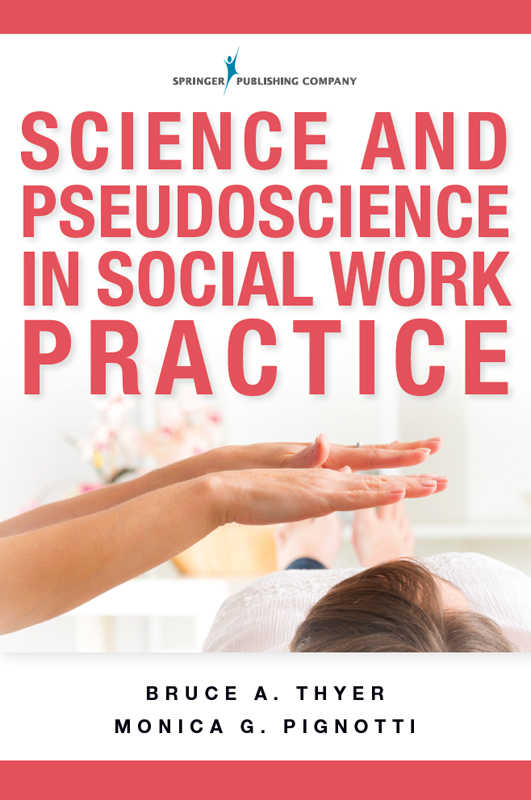Science and Pseudoscience in Social Work Practice
Bruce A. Thyer, PhD, LCSW, BCBA-D, is a professor and former dean, College of Social Work, Florida State University. He is a licensed clinical social worker and a board-certified behavior analyst. He has served in elected national leadership roles with the Society for Social Work and Research (SSWR), the Group for the Advancement of Doctoral Education in Social Work, the Council on Social Work Education, and the Association for Professional Behavior Analysts. He is a fellow of the American Psychological Association, the Association for Psychological Science, the Social Work Academy of the National Academies of Practice, and the SSWR. Dr. Thyer founded and continues to edit one of social works premier journals, Research on Social Work Practice. He has written more than 250 articles in professional journals and more than 100 book chapters, and has produced more than 35 books. His research interests involve the promotion of evidence-based practice, evaluation research, applied behavior analysis, and clinical social work theory and practice.
Monica G. Pignotti, PhD, LMSW, is a licensed master social worker in the state of New York. She has taught social work practice, social work research, and diversity in social work courses. She has authored numerous book chapters and articles in professional journals, and keeps a blog on potentially harmful and other questionable therapies. She is a member of the Association for Psychological Science and the Society for a Science of Clinical Psychology.
Science and Pseudoscience in Social Work Practice
Bruce A. Thyer, PhD, LCSW, BCBA-D
Monica G. Pignotti, PhD, LMSW

Copyright 2015 Springer Publishing Company, LLC
All rights reserved.
No part of this publication may be reproduced, stored in a retrieval system, or transmitted in any form or by any means, electronic, mechanical, photocopying, recording, or otherwise, without the prior permission of Springer Publishing Company, LLC, or authorization through payment of the appropriate fees to the Copyright Clearance Center, Inc., 222 Rosewood Drive, Danvers, MA 01923, 978750-8400, fax 978646-8600, .
Springer Publishing Company, LLC
11 West 42nd Street
New York, NY 10036
www.springerpub.com
Acquisitions Editor: Stephanie Drew
Composition: Newgen KnowledgeWorks
ISBN: 978-0-8261-7768-1
e-book ISBN: 978-0-8261-7769-8
15 16 17 18 19 / 5 4 3 2 1
The author and the publisher of this work have made every effort to use sources believed to be reliable to provide information that is accurate and compatible with the standards generally accepted at the time of publication. The author and publisher shall not be liable for any special, consequential, or exemplary damages resulting, in whole or in part, from the readers use of, or reliance on, the information contained in this book. The publisher has no responsibility for the persistence or accuracy of URLs for external or third-party Internet websites referred to in this publication and does not guarantee that any content on such websites is, or will remain, accurate or appropriate.
Library of Congress Cataloging-in-Publication Data
Thyer, Bruce A.
Science and pseudoscience in social work practice / Bruce A. Thyer and Monica G. Pignotti.
pages cm
Includes index.
ISBN 978-0-8261-7768-1
1. Social servicePractice. 2. Pseudoscience. 3. Social case work. 4. Social work education. I. Pignotti, Monica. II. Title.
HV10.5.T49 2015
361.3'2dc23
2015003622
Special discounts on bulk quantities of our books are available to corporations, professional associations, pharmaceutical companies, health care organizations, and other qualifying groups. If you are interested in a custom book, including chapters from more than one of our titles, we can provide that service as well.
For details, please contact:
Special Sales Department, Springer Publishing Company, LLC
11 West 42nd Street, 15th Floor, New York, NY 100368002
Phone: 877687-7476 or 212431-4370; Fax: 212941-7842
E-mail:
Printed in the United States of America by Gasch Printing.
Contents
by Eileen Gambrill, PhD
Foreword
This book is long overdue. In Science and Pseudoscience in Social Work Practice, the authors suggest that clinical social work has matured to the point of being able to take a blunt look at some of the more disreputable elements to be found within the profession (Preface, p. xxiii). They describe an alarming variety of questionable practices used by social workers and argue for a housecleaningdecreasing use of ineffective and/or harmful practices and increasing use of effective interventions. Harming in the name of helping by professionals is by no means limited to social work, as the history of other professions readily shows (e.g., Jacobson, Foxx, & Mulick, 2005; Lilienfeld, Lynn, & Lohr, 2014; Scull, 2015). More often than not, such harm is not intended. This book is informed by surveys that the authors as well as others conducted regarding interventions social workers report using, for example, for posttraumatic stress disorder. They examined the evidentiary status of such interventions. The authors also discuss the underlying theory related to interventions used. Is this well argued and well tested? Is it compatible with empirical data? Their illustrations indicate that the life-affecting decisions made regarding interventions are often neither theoretically nor empirically well grounded. Some interventions reported as being used have been critically tested and shown to be harmful. Use of such practices does not seem to be a result of errors and mistakes that are inevitable both in science and in the helping professions (Skrabanek & McCormick, 1992). Most seem to be related to negligencenot taking due diligence to become informed about crucial assessment and intervention concerns such as evidentiary status. The authors identify theories and interventions that have been critically appraised and found to help clients, which are available as alternatives to use of harmful or ineffective methods. But are these available to social workers? And if not, why not? This call for and modeling of transparency is a welcome oneone that is matched by trends in other helping professions and, indeed, concerning research itself, as illustrated by the creation of METRICS (Meta-Research Innovation Center at Stanford), designed to combat the enormous waste of money and effort conducting research that cannot answer questions raised (see Ioannidis, 2005, 2008, 2014).
Those in the helping professions claim to help people who seek or are forced to use their services. Social workers offer most of the mental health services in the United States today. They work with vulnerable clients in many different contexts. Claims of special expertise are integral to the helping professions. Do social workers have such expertise? Claims about what is true and what is not are integral to all helping professions. Claims are made about the accuracy of assessment methods, probability of risk, and effectiveness of intervention programs. The accuracy of these claims has life-affecting consequences for clients. Are they true? Are they false? And on what criteria are decisions based? Should professionals rely on intuition and, if so, what type, informed or uninformed (Hogarth, 2001)? Should they rely on what they learned during their professional education and in continuing education programs? Should they be evidence informed and, if so, what does this mean? Who is to say what evidence is? In psychiatry and social work, unlike most other helping professions, professionals are often double agentsagents of the state as well as agents of clients, as in child welfare and enforced psychiatric commitment. What boundaries are set on services offered and who reviews their quality and based on what criteria? This book

